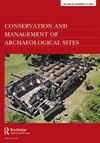考古遗产管理教学。走向范式的转变
IF 0.8
4区 历史学
0 ARCHAEOLOGY
Conservation and Management of Archaeological Sites
Pub Date : 2018-11-02
DOI:10.1080/13505033.2018.1559423
引用次数: 6
摘要
几十年来,考古遗产管理(AHM)的概念一直是广泛的考古研究和保护议程的关键。许多大学和其他教育机构现在以各种形式提供所谓的遗产管理教育(HME)。重点通常是在广义上的遗产的考古方面,不同的术语在实践中经常可以互换。在芬兰坦佩雷举行的一次创新工作会议上,我们发起了一场辩论,讨论作为一门或几门课程的人道主义管理的组成部分应包括哪些内容。我们汇集了国际专家,在地方、国家、跨国和世界遗产层面讨论了有关政策、实践、研究和教学/培训的相关问题。在本文中,我们将进一步讨论坦佩雷,特别关注跨学科HME的意义、必要性、影响和先决条件。我们提供了我们对发展反映当代方面和遗产及其管理需求的HME的想法。本文章由计算机程序翻译,如有差异,请以英文原文为准。
Teaching Archaeological Heritage Management. Towards a Change in Paradigms
ABSTRACT The concept of archaeological heritage management (AHM) has been key to wider archaeological research and preservation agendas for some decades. Many universities and other education providers now offer what is best termed heritage management education (HME) in various forms. The emphasis is commonly on archaeological aspects of heritage in a broad sense and different terms are often interchangeable in practice. In an innovative working-conference held in Tampere, Finland, we initiated a debate on what the components of AHM as a course or curriculum should include. We brought together international specialists and discussed connected questions around policy, practice, research and teaching/training, at local, national, transnational and World Heritage levels. In this article we take the Tampere discussions further, focusing especially on the meaning, necessity, implications and prerequisites of interdisciplinary HME. We offer our thoughts on developing HME that reflects the contemporary aspects and needs of heritage and its management.
求助全文
通过发布文献求助,成功后即可免费获取论文全文。
去求助
来源期刊

Conservation and Management of Archaeological Sites
ARCHAEOLOGY-
CiteScore
0.40
自引率
0.00%
发文量
1
期刊介绍:
The journal Conservation and Management of Archaeological Sites (CMAS) has established itself as the primary reference in this field, both for active professionals and for university teachers and students. Launched in 1995, it is the only journal that covers both theoretical and practical issues in heritage site management and conservation. Peer-reviewed papers from around the world report on new thinking and best practice in site management and conservation. Topics covered include: •Cultural, social, ethical and theoretical issues in archaeological site management and conservation •Site management •Historical documentation and condition reporting •Site deterioration and environmental monitoring •Preventative conservation, including reburial and protective sheltering of sites •Building materials analysis and treatment •Restoration and reconstruction of buildings •Visitor management and sustainable tourism •Site interpretation •National and international legislation and charters
 求助内容:
求助内容: 应助结果提醒方式:
应助结果提醒方式:


